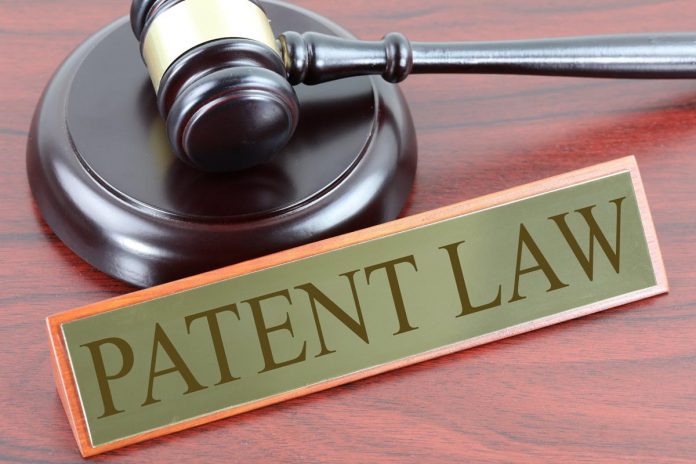This article is written by Ojas Chitre, pursuing a Certificate Course in Trademark Licensing, Prosecution and Litigation from LawSikho.com. Here he discusses “Patentability of Biotech Innovations in Light of Recent Monsanto and Naziveedu Dispute”.
Introduction
The order passed by Single Judge of Delhi High Court on March 27th, 2017 held that Monsanto’s Bollgard Technology is unpatentabe. This raised question on the patentability of biotech innovations in India. On January 8th, 2019 Supreme Court of India overruled the judgment of Single Judge of Delhi High Court and Division Bench of Delhi High Court. This article discusses the patentability of biotech innovations in India with reference to Monsanto and Naziveedu Dispute.
Background
Monsanto is a fortune 500 company, operating in 69 countries, conducting research and development in the field of agriculture. Monsanto was acquired by Buyer in 2018 as a part of the crop science division. Monsanto entered into a sublicensing agreement of patent number IN214436 with Naziveedu Seeds Ltd and others on February 21st, 2004 for the period of 10 years. The agreement allowed the licensees to develop ‘Genetically Modified Hybrid Cotton Planting Seed’ using licensor’s technology as well as it allowed the licensees to commercially exploit the same subject to the limitation prescribed in the agreement. The agreement also provided, for use of licensed technology, payment of ₹50 lakhs by licensees as license fee. Disputes among licensor and licensees began after the extension of the contract when state government introduced new policies for price control.
The Suit in Delhi High Court (Single Judge)
Analyzing Circumstances
Indian companies asked Monsanto the licensor to reduce their license fees as new price control policies were pursued by the state government. Indian companies the licensees stooped payment of royalties when Monsanto denied their request. On November 14th, 2015 Monsanto filed an application for an injunction for trademark infringement and violation of registered patent with a view of the termination of the agreement. Monsanto started the arbitrary procedure of recovering 400 crores from the licensees. Defendants alleged that the patent is in violation of section 3(j) of Indian Patent Act 1970, and claimed revocation of a patent under section 64 of the same act. Section 3(j) of Indian Patent Act 1970 states “plants and animals in whole or any part thereof other than micro organisms but including seeds, varieties and species and essentially biological processes for production or propagation of plants and animals.” Section 3(j) clearly lays down that plants and animals, their seeds, varieties, species and essentially biological processes for production or their breeding by natural process unless it is microorganisms. A process is considered to be an essentially biological if it is entirely a natural phenomenon. However, the Indian Patent Act 1970 doesn’t define ‘essentially biological process’. Section 64 of the Indian Patent Act states grounds for revocation of the patent.
Judgement
Decision of Single Judge of Delhi High Court stated
- License terminated by Monsanto was reinstated.
- Indian companies were allowed to use the patented technology and during the pendency of the suit, the trait value compensation is to be paid by Naziveedu Seeds Ltd and Ors as fixed by the Government Policies.
- Patent protection can not be enforced until the suit was disposed of.
- Rejected all the claims for invalidity and rejection of the patent.
An appeal in Court of Division Bench of Delhi High Court
Appeal
Monsanto (licensor) and Naziveedu Seeds and Ors. (licensees) appealed to Division Bench of High Court of Delhi against Single Judge’s decision.
- Monsanto challenged the decision of reinstating license terminated by them.
- Nadiveedu Seeds and Ors challenged the decision of rejection of their claim against the validity of the patent (IN214436) held by Monsanto.
Judgement
Decision of court Division Bench of High Court of Delhi
- Subject patent falls under section 3(j) of the Indian Patent Act 1970, therefore, the mentioned patent is unpatentable.
- Division Bench held up the decision of Single Judge of High Court regarding license fee payable by Indian Companies (licensees) to Monsanto (Licensor).
- Court gave a time period of 3 months to Monsanto to seek protection for its invention under ‘Protection of Plant Variety and Farmers Protection Act. 2001’.
Points to Note
-
Court arrived at decision without adequate claim construction
Any judgement deciding the validity of the patent has to begin with interpreting the claims at dispute in order to determine subject matter being claimed by the patentee. Only after claim construction patentee can decide whether the subject matter is patentable and pass the test of novelty, inventive step and industrial application.
-
Court passed judgement without an expert witness
Division Bench of High Court declares the patent (IN214436) invalid for seeking patent over ‘essentially biological process’. In this case, Monsanto introgressed a specific gene into cotton seeds, which took place because of human intervention.
3. Scope of consent to summary trial
Monsanto had never consented to a summary adjudication regarding the validity of the patent. The above-mentioned consent was given only to decide whether Monsanto’s patent was infringed.
4. Certificate to appeal granted
The court granted a certificate of leave to appeal on the grounds that the case raises a substantial question of law. This means that the Supreme Court will have to admit the appeal for a hearing.
An appeal in Supreme Court of India
Judgement
Interpretation of the Supreme Court’s judgement
- Defendants (Naziveedu Seeds & Ors) claimed that there is no inventive step in plaintiff’s (Monsanto) patent until artificial NAS is inserted into a plant so that the plant starts producing the delta-endotoxin which is toxic to the Bollworms.
- Defendants claim, “there is no capability of industrial application of the NAS except to become part of a plant and to develop a transgenic plant.”
- In judgement Supreme Court states that will not define ‘essentially biological product’ for now. Point 19 of the judgement states “we do not consider it necessary to deal with the same at this stage, and leave open all questions of facts and law to be urged for consideration in appropriate proceedings.”
- Section 64 of Indian Patent Act 1970 provides for revocation of the patent based on a counterclaim in a suit. It presumes a valid consideration of the claims in the suit and the counterclaim in accordance with the law and not summary adjudication. This section is available as a defence against an infringement action.
- The Civil Procedure Code provides a detailed procedure with regard to the manner in which a suit instituted under Section 9, including a counterclaim has to be considered and adjudicated.
- Supreme Court was satisfied in the facts and circumstances of the case that the nature of the injunctive relief granted by the Single Judge of Delhi High Court, was in order and merits no interference during the pendency of the suit.
- Supreme Court expresses that The Division Bench should have confined itself to the examination of the validity of the order of injunction granted by the learned Single Judge.
- The order of the Division Bench is set aside by Supreme Court. The order of the Single Judge dated 28.03.2017 was restored and the suit was remanded to the Single Judge for disposal in accordance with the law.
Question of Patentability
General Rules for Patent
Following are the rules laid down by the Indian Patent Act 1970 for a process and product to be eligible for a patent.
- Inventive Step- An invention of a product or a process has to be new involving an inventive step for eligibility of patent in India.
- Capable of Industrial Application- An invention relating to a product or a process that is capable of application in the industry can be patented in India.
- Novelty- This means that the invention must not have been made public, not even by the inventor himself, before the date of the application.
However, the patent must not fall into the category of inventions that are non-patentable under as provided under chapter 2 (inventions not patentable) of the Indian Patents Act, 1970.
- Section 3 lays down ‘what are inventions’.
- Section 4 states ‘inventions relating to atomic energy are not patentable’.
- Section 5 used to deal with ‘Inventions where only methods or processes of manufacture patentable’, it is omitted by the Patent (Amendment) Act 2005.
Patentability of Biotech Innovations
- The decision of the Supreme Court in the case of Monsanto & Naziveedu Seeds established that the biotechnological crops as important innovations can be protected under the Indian Patent Act 1970.
- The court overruled all questions relating to the validity of inventions under the Indian Patent Act.
Conclusion
India is among the top 12 destinations for biotechnology in the world with approximately 3% share in the global biotechnology industry. Agrotech and biotech are a complex yet rapidly growing field in India. Clear legal and technical definitions are crucial to avoid misinterpretation. The decision of the Supreme Court in Monsanto & Naziveedu Seeds case will reassure the companies to continue the innovation and seek protection under the Patents Act, 1970. Yet there is a need for government to chalk out a proper framework for protection for sustainable growth in this field.
References
- Bollgard Technology provides seed protection for cotton seeds.
- Monsanto Technology LLC & Ors vs. Nuziveedu Seed Ltd & Ors., CS(COMM) 132/2016. Order dated March 28, 2017.
- Monsanto Technology LLC & Ors vs. Nuziveedu seeds & Ors., Civil Appeal Nos. 4616-4617 of 2018
- Bollgard Technology
- Rule 26(5) of the European Patent Convention.
- Monsanto Technology LLC & Ors vs. Naziveedu Seeds Ltd & Ors. CS(COMM) 132/2016. Order dated March 28th, 2017.
- Monsanto Technology LLC & Ors vs. Naziveedu Seeds Ltd & Ors. FAO (OS) (COMM) 86/2017 & 76/2017 decision dated April 11th, 2018.
- Monsanto LLC & Ors. vs Naziveedu Seeds & Ors. C.A. No.-004616-004617 / 2018 order dated Jan 8th, 2019.
Students of Lawsikho courses regularly produce writing assignments and work on practical exercises as a part of their coursework and develop themselves in real-life practical skill.
https://t.me/joinchat/J_0YrBa4IBSHdpuTfQO_sA
Follow us on Instagram and subscribe to our YouTube channel for more amazing legal content.
 Serato DJ Crack 2025Serato DJ PRO Crack
Serato DJ Crack 2025Serato DJ PRO Crack










 Allow notifications
Allow notifications


